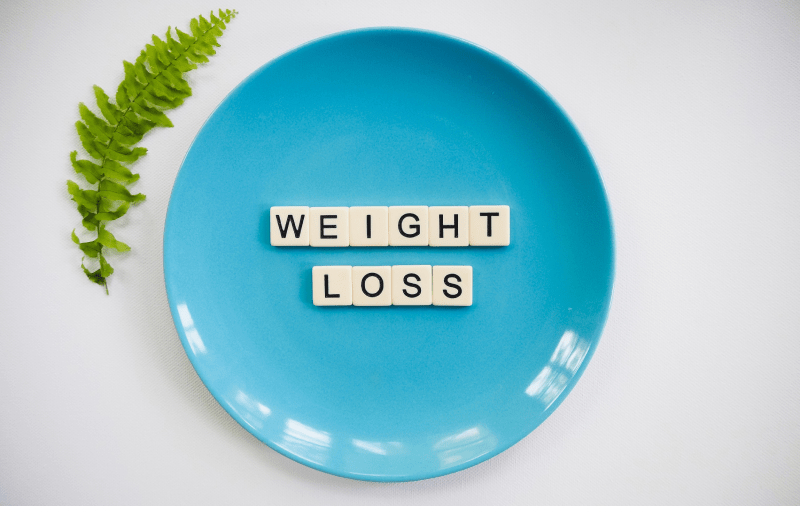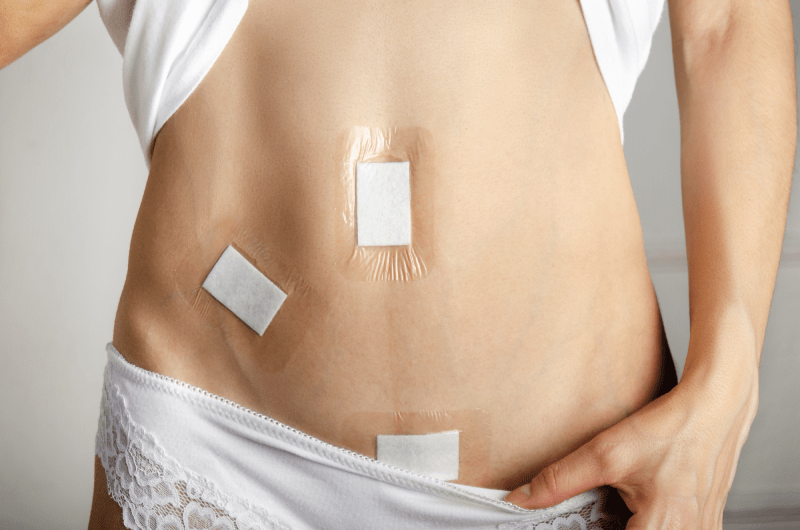Gastric Sleeve Prices in Fethiye, Turkey

What Is a Gastric Sleeve?
Gastric Sleeve surgery (Sleeve Gastrectomy) is a surgical weight-loss procedure in which the stomach is reduced to about 15% of its original size by surgical removal of a large portion of the stomach along the greater curvature. The result is a sleeve or tube-like structure. The procedure permanently reduces the size of the stomach, although there could be some dilation of the stomach later on. The procedure is generally performed laparoscopically and is irreversible. This treatment helps overweight patients reach or maintain their goal weight.
You can get more information about gastric sleeves by reading our content. Please do not hesitate to contact us if you have any questions. Our team is ready to assist you 24/7.
Who Can Get Gastric Sleeve?
While obese patients can benefit from gastric sleeve operations, not every obese person is a suitable candidate for gastric sleeve treatment. In order to be eligible for gastric sleeve treatment, patients must have the below qualifications.
- The patient should be in good general health.
- Patients must be at least 18 years of age and no older than 65.
- Body mass index (BMI) must be at least 40 to be able to maintain the drastic dietary change that will occur following the operation. Patients who don’t fit this description need to have a BMI of at least 35 and additional obesity-related illnesses. Patients who have a BMI between 35 and 40 might be eligible to receive this treatment if they have additional obesity-related illnesses such as heart disease, diabetes, or high blood pressure.
Everyone who satisfies these requirements is eligible for gastric sleeve treatment.
The best way to ensure that you have a successful surgery with minimum complications is to receive treatment from a skilled and experienced surgeon. Naturally, this will positively impact the treatment’s success rate. Therefore, your choice of surgeon and clinic plays a major role in determining the risks that will occur in your body after the operation. Our specialist surgeons perform their operations in hygienic clinics equipped with up-to-date surgical devices.
How Much Weight Loss Is Possible With Gastric Sleeve?
One of the first questions that patients ask is how much weight loss they can anticipate after gastric sleeve surgery. After gastric sleeve surgery, patients can expect to lose weight drastically and rapidly. With approximately 80% of the stomach removed, patients feel full quickly and eat smaller portions. As a result of the surgery, the appetite-inducing hormone ghrelin is also released less. This helps patients manage their hunger and makes dieting easier. A year after the surgery, many patients lose 60-70% of their excess weight on average.
However, it is essential to note that this is only possible if the patients make a significant shift in the lifestyle, maintain their diet, and continue exercising after the recovery period.

How to Prepare for Gastric Sleeve Surgery
Patients usually need to lose weight before sleeve gastrectomy procedures because the laparoscopic surgery technique is used during the operations. Obesity results in high-fat levels around some of the internal organs such as the liver. This causes the liver to get bigger. As the liver is right next to the stomach, it can be ideal to lower the fat around the liver and other internal organs to make the surgery easier and safer. Obese and severely obese individuals generally are at greater risk during surgical operations. For this reason, you should discuss with your physician whether you can reduce your weight before the procedure.
For this reason, patients who will have gastric sleeve surgery must follow a strict diet, before and after the operation. The diet usually starts two weeks prior to the surgery and the patient is given a daily calorie intake limit to follow. Consumption of food and beverages that have high in carbohydrates is restricted. Two days before the surgery, patients begin a liquid diet. They must consume only liquids such as water, tea, broth, sugar-free protein shakes. During the pre-operation liquid diet, caffeinated and carbonated drinks are not consumed.
As gastric sleeve surgery results in a drastic size difference in the stomach, the body needs some time to adjust. Thus, the diet continues for a month after the surgery. The patient can gradually return to eating normally each week after the surgery. For the first two weeks post-operation, the liquid diet continues. After two weeks, little by little, solid food will be incorporated into the patient’s diet.
As each individual is different, you and your surgeon will discuss and create a diet plan specifically for your needs.
Additionally, you should mentally ready yourself for the surgery. The dieting process may be challenging and your body will be changing drastically. You may focus on your happiness following the procedure as well as the successful process. You can write down the difficulties brought on by being overweight and make note of how the process changes after the operation. This will motivate you.
After all of this, you should ask a relative or a friend to support you with the operation. You will have some difficulty moving after the operation and will require assistance.
How Is Gastric Sleeve Surgery Done
During the process, you will be unconscious. You won’t feel anything because you’ll be unconscious due to a general anesthetic. However, there are two ways to carry out the procedure. The goal of both open surgery and laparoscopic surgery is the same, however open surgery involves making a huge incision and moving on from there. Recovery takes longer after surgery because the patient’s abdomen still has a noticeable scar from the incision.
The gastric sleeve surgery is performed under general anesthesia. The patient is unconscious during the entire process and does not feel any pain.
There are two types of gastric sleeve surgeries, namely open gastric sleeve surgery and laparoscopic gastric sleeve surgery. Open surgery is more invasive and requires a single, large incision in order to reach the stomach. Laparoscopic surgery, on the other hand, is less invasive and several smaller incisions on the abdomen are used to reach the stomach from the outside with surgical tools. Laparoscopic surgery leaves less noticeable scars and the recovery period tends to be quicker. While laparoscopic surgeries are performed more often, open surgery might be recommended in some cases.
Regardless of the surgery method, the aim of the operation is the same. The bigger curvy section of the stomach is stapled to create a smaller stomach that resembles a tube. The stomach is divided into two and the stapled section of the stomach is removed. After the surgery, the stomach size decreased by approximately 80%.

After Gastric Sleeve Surgery
In the few hours post-operation, the patient will continue to be asleep and the hospital staff will monitor the patient’s vital signs and help with pain relieving. Once you wake up, you’ll likely experience intense hunger as a result of your extended hunger since the previous evening, r. You should be aware that you shouldn’t even drink water for a few more hours. Following the procedure, your doctor will visit you and give you the essential information. The hospital stay can vary according to the patient’s condition and the average hospital stay is two days.
In the first week after the surgery, the person should be fed only sugar-free, non-carbonated beverages. You can gently introduce pureed semi-solid, semi-liquid foods after the first week. The patient must follow this diet for four weeks before they can return to their pre-op diet. Because of the decreased size of the stomach, patients may experience vitamin deficiencies and might be prescribed multivitamins, calcium supplements, B12 injections, etc.
You will have routine medical visits to monitor your health in the initial months following weight loss surgery. Tests in the lab, blood tests, and other procedures can be necessary.
What Are the Risks of Gastric Sleeve Surgery?
Every surgery carries some risks. During gastric sleeve surgery, the patient is given general anesthesia, which is a commonly used medication that requires great attention. Older adults or patients with serious medical issues might experience complications related to general anesthesia.
There can be complications during gastric sleeve surgery such as gastric leaks, tissue adhesion, or organ damage. These can usually be managed during the operation by experienced surgeons.
As is the case with major surgeries, there are also some risks that are associated specifically with gastric sleeve operations. Despite being a popular weight loss surgery, gastric sleeve procedures can still have a number of dangers. Some of the complications that can happen after the surgery are blood clots, staple line leaks, stricture, and infection. However, it is important to note that these are extremely rare occurrences and the great majority of the patients do not experience these complications.
Post-operation, it is possible to see some changes in the body such as body aches, tiredness, feeling cold, dry skin, hair thinning and hair loss, mood changes, sleep deprivation, and vitamin deficiency. The size of the stomach is significantly reduced during gastric sleeve surgery and it is only natural for the body to feel some stress. For this reason, it is important to drink more liquids, follow a healthy diet, exercise, and have enough sleep to have better overall health.
It is important to discuss the medical history of the patient in order to lessen the possible risks of gastric sleeve surgery.
Gastric Sleeve Surgery in Turkey
Turkey is one of the most popular medical tourism destinations around the world today. Patients usually choose Turkey over other countries for medical treatments because the treatments are much more affordable and have a high success rate. Turkey’s cheap cost of living and high exchange rate are two factors that raise purchasing power. As a result, patients can be treated for incredibly low costs.
Gastric sleeve procedures have a very high success rate. In Turkey, the usage of technology in the medical industry is quite high. The hospitals and clinics in Turkey are equipped with quality medical technology and medical devices and the surgeons are skilled with years of experience. the effectiveness of treatment is substantially impacted by this.
As the cost of living in the country is fairly low. The patients do not need to spend thousands of euros for their stay. Accommodation before and after the surgery, transportation, and eating out are all available for reasonable prices.

Why Do People Prefer Fethiye for Gastric Sleeves?
The Fethiye district of the Muğla province is among the most popular places in Turkey. It is easy to understand why as the city is home to some of the most beautiful natural tourist attractions. Aside from its popular attractions within the city, there are numerous spacious, well-equipped, and comprehensive hospitals in the region which makes the city attractive to medical tourists. Fethiye is roughly an hour’s drive away from cities such as Marmaris and Kusadasi which are known for their successful medical treatments. Thanks to Fethiye’s location, patients can easily access the hospitals and clinics in the region and receive quality medical care from experienced medical staff before, during, and after their treatments.
Moreover, there are many hotels near the hospitals which makes accommodation and transportation very convenient. As the city has great beaches, historical attractions, and nightlife, many medical tourists combine their treatment with a medical holiday and enjoy the city.
Best Clinics for Gastric Sleeve in Fethiye, Turkey
When you decide to get treatment in the Fethiye region, you should be advised that while it is a wise choice to look for the top clinics, getting treatment from a top clinic does not always mean the best treatment. Every clinic has a unique element that makes it stand out. It won’t be possible to name it the greatest clinical for this reason. On the other hand, you are in the ideal location if you are looking for a respected clinic.
Because of the discounted rates at our contracted hospitals and clinics near Fethiye, CureBooking can offer you successful and reasonably priced gastric sleeve treatments.
If you are interested in learning more about gastric sleeve surgery and medical holiday packages in Fethiye, you can contact us for consultation.
Gastric Sleeve Cost Near Fethiye, Turkey
Like other cities and countries, gastric sleeve surgery costs vary in hospitals and clinics around Fethiye. Finding the lowest pricing is therefore important for the patients. At CureBooking , we have researched the best prices for you. Currently, we offer gastric sleeve surgeries for €3600 in our contracted medical facility.
If you are thinking about getting gastric sleeve surgery and looking for a more reasonable clinic, we can also help you receive gastric sleeve surgery in our contracted clinic in Kusadasi for €2600. CureBooking can handle your transportation fees for you. As the clinic in Kusadasi is located only an hour away from Izmir Adnan Menderes International Airport, transportation is very convenient.
If you are interested in getting gastric sleeve surgery, you can contact us and ask any question you may have about gastric sleeve surgery in Turkey and the pricing.







